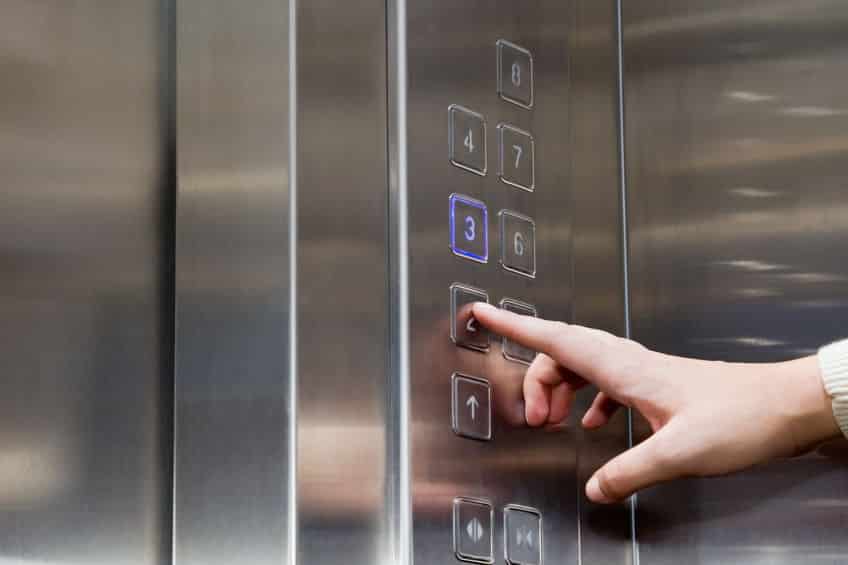
Elevator Safety
Posted on February 27, 2019 in Firm News
Safety of New York Elevators is Slipping
“Private elevator inspectors in New York City are missing hazardous violations and allowing unsafe conditions to go unrepaired,” according to a report by New York State Comptroller Thomas DiNapoli. This is worrisome news for New Yorkers.
“In a vertical city, with tens of thousands of elevators carrying millions of people, it is unacceptable that New Yorkers should have to worry about false inspections or hazardous conditions. Even in a limited group of inspections, we found nearly everyone missed violations that could pose risks to safety,” said DiNapoli in a statement.
Similarly, in January of this year, a seven-month investigation conducted by The Real Deal, a publication focused on New York real estate, released troubling statistics regarding elevator safety maintenance in New York City. Although elevators across the city are supposed to be subject to strict inspections and maintenance schedules, The Real Deal exposed a broken system that is leaving thousands of elevators throughout the five boroughs unchecked for issues that could lead to serious and fatal injuries.
The bulk of these neglected elevators are in buildings owned by the New York City Housing Authority (NYCHA), where residents are families, seniors, and disabled individuals who depend solely on elevators to leave their homes. However, the investigation also found that owners of luxury apartment buildings are also putting their residents at risk by trying to save money on elevator repairs and maintenance.
According to the investigation, a large number of mechanics who are hired by property managers and landlords to fix and inspect elevators lack proper training to do their jobs. Why are property owner hiring subpar mechanics for their elevators? To save money. In New York City, elevator mechanics are not required to be licensed by an accredited training program to perform their job. This is not the case in other large cities like Chicago and Los Angeles. By opting to hire a less expensive mechanic who is not accredited, landlords and property owners can save money, but at a risk.
The NYCHA is responsible for maintaining 3,237 elevators in 2,350 buildings in New York City. It is estimated that every one of these elevators is out of service at least once a month. There are daily reports of residents trapped in malfunctioning elevators. Others have reported incidents of severe shaking, loss of power, and being stuck between two floors. Many have been forced to escape themselves when no one has come to their rescue. Not only have fatalities occurred from elevator accidents, but so have catastrophic injuries including the loss of limbs, severe fractures, broken bones, spinal injuries, and traumatic head injuries. One of the most serious malfunctions involves the brakes failing to lead the elevator to plummet downward.
Though most of the The Real Deal report focused on elevators owned by the NYCHA, even luxury apartments are not off the hook. In October 2015, a group of friends getting back from a night out piled into a Manhattan elevator in a luxury apartment complex. The elevator’s brake broke before everyone in the group was able to get in and resulted in one man’s death after he was caught between the elevator and the level he was entering on.
In another incident last month, a housekeeper was extremely lucky after she was trapped in her employer’s elevator in Manhattan for three days before she was rescued. Firefighters pried her out of the elevator car after her employers came home to find her stuck. She was hospitalized for dehydration but had her employers been gone longer, the result could have been deadly.
How Elevators Should Be Maintained
Elevators must be maintained regularly and by experts who are professionally trained. According to Mowery Elevators, mechanics who are working on an elevator in any building should take the following steps to keep it in good working condition.
- Inspect elevators once a year. Annual inspections will help keep elevators safe and pinpoint issues that could cause harm to riders. Mechanics should be able to conduct elevator inspections in accordance with state and federal safety regulations. They should also be able to make any necessary repairs to elevators that do not pass inspection. A Certificate of Operation should not be issued until all proper maintenance is completed.
- Always keep elevators in working condition. Elevators experiencing malfunctions should be fixed and thoroughly inspected before allowing riders to get back in. Fixing the pit light, cleaning the top of the elevator cars, removing water and debris from the elevator pit, fixing the door reversal device, and checking the door restrictor are just a few of the common steps mechanics should be taking to keeping elevators in working order.
- Elevator room should be kept up to code. Machine rooms are an intricate part of the elevator’s functioning and should be regularly maintained. Making sure this room is kept clutter free and locked to restrict access are essential steps to perform during every inspection.
- Stay on top of elevator repairs. Mechanics should fix issues as soon as they are reported to avoid possible injuries. Regular maintenance is a must.
If you or a loved one has been injured or killed in an elevator accident, the law firm of Pazer, Epstein, Jaffe, & Fein is here to help. Contact us using our convenient online form or feel free to phone us in New York at 212-227-1212, or in Huntington/Long Island at 631-864-2429.
Sources:
Kathryn Brenzel and David Jeans, Elevated Risk, The Real Deal (January 1, 2019), https://therealdeal.com/issues_articles/elevator-accidents-new-york-city/
Kathryn Brenzel and David Jeans, Elevated Risk: Malfunction at NYCHA, The Real Deal (February 1, 2019), https://therealdeal.com/issues_articles/nycha-elevators/
5 Things to Know About Elevator Maintenance, Mowery Elevator (December 15, 2016), http://www.mowreyelevator.com/industry-updates/5-things-know-elevator-maintenance/
Thomas P. Dinapoli, Audit Finds False Elevator Inspections, Safety Hazards Overlooked, The Office of the New York State Comptroller (June 6, 2018), https://www.osc.state.ny.us/press/releases/june18/060618.htm

